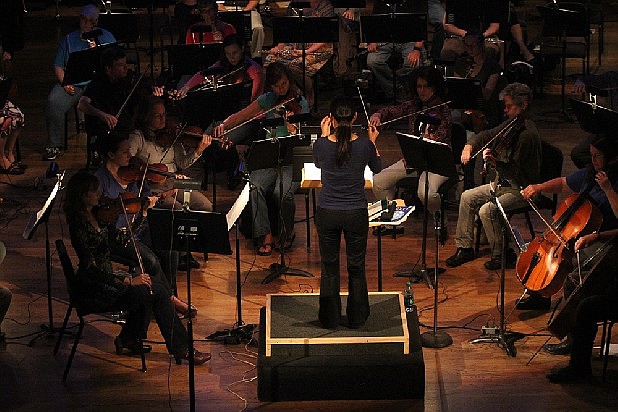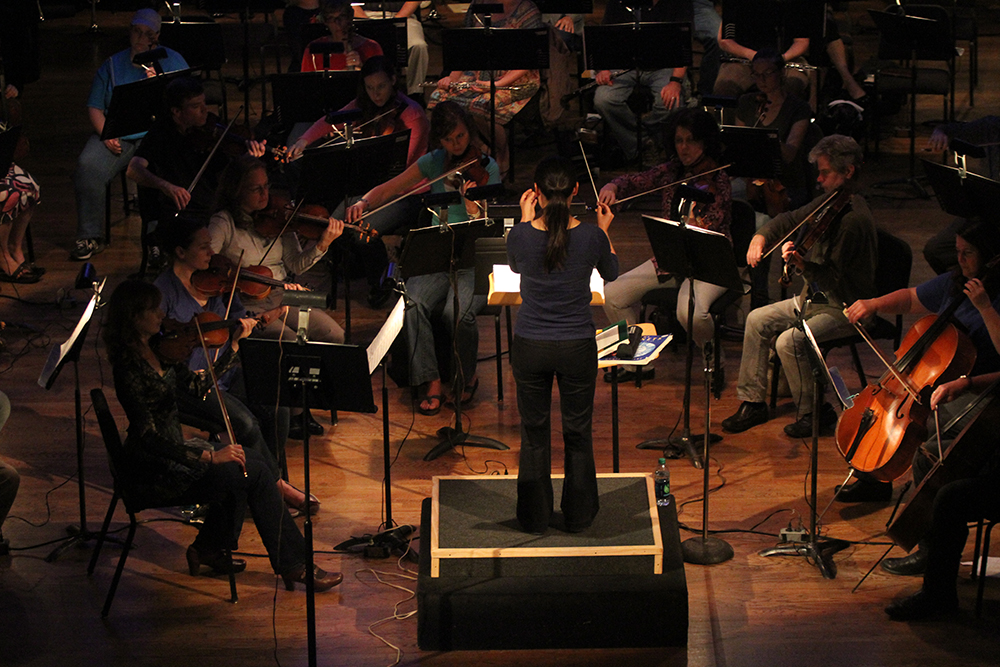As the teeth-chattering cold of last week surrendered to a beautiful-albeit blustery - fall evening and gleaming full moon, the dazzling colors among the maples gave meaning to the Scenic City's moniker, offering the perfect excuse to get out on Thursday evening to hear the Chattanooga Symphony Orchestra in another Masterworks Series at the Tivoli Theatre.
Beethoven composed only one opera and probably wished he hadn't tackled that ("it brought me the most sorrow; and for that reason, it is the one most dear to me"). It was known as Fidelio, although Beethoven called it Leonore, and he never could seem to decide how it should go. Almost every time the opera had a new performance, Beethoven was tweaking this or that aria or composing a whole new overture to open the work. The result was three separate overtures.
"Leonore Overture No. 3, Op. 72b" was prepared for one of his revisions (1806), but it didn't really work because it overpowered the opera that was to follow. Although it didn't succeed as a prelude to the opera, it did thrive as a dramatic single-movement orchestral work, reflecting the heroic struggles of the Napoleonic era on an epic scale. It's the perfect concert opener.
And it was a near-perfect performance with maestro Kayoko Dan managing her forces in a tensely coiled rendition that bubbled with Beethovenian energy. The ensemble offered a full-bodied sound and a surety of playing, featuring principals Kristen Holritz (flute), Eric Anderson (bassoon), and David Hobbs (offstage trumpet).
While Beethoven was the transitional composer from the Classical to the Romantic era, Franz Schubert was clearly a child of the latter. His "Symphony No. 4 in C minor"- which he called "Tragic" - is explained by some as being autobiographical, reflecting his despair as a 19-year old young man, trying to establish himself.
Romantic gloom characterizes the lengthy introduction to the first movement and betrays the composer's youthful nature. Dan did a fine job of eliciting the required emotional turmoil. The second movement is filled with the delicious type of Schubertian melody for which the composer is famed. It was glorious. The third was lively and lilting, while the finale opened with the stormy temper of the opening movement, eventually resolving into a sunnier C major. Although this segment lost some of its focus and suffered from intonational challenges in the strings, the overall performance of this lesser-known work was much welcomed.
Violin soloists have always pretty much been the rock stars of classical music-although both virtuosic pianists and magnificent cellists like Yo-Yo Ma are also much sought after. This concert's headliner was violinist Andrew Sords who boasts performances with 150 orchestras on 4 continents. He champions both traditional and contemporary composers, and his "crossover" recordings such as "Transcendence" are available on iTunes (you can also pull up some tracks on YouTube).
Jean Sibelius' "Violin Concerto in D Minor, Op. 47" has the potential to be a barnburner, and Andrew Sords did not disappoint. From the moment this trim, youthful-looking performer strode onto the stage in his red shirt and black vest, one could imagine the excitement to come.
The first movement contains ardent and melancholy themes, interspersed with plenty of cadenza-like passages for the soloist to display his prowess. And Sords did, ripping off countless glittering passages, strewn with multiple stops. And when Sibelius finally managed to produce a hummable melody, Sords responded with a rich and full tone, especially in his low register.
Tchaikovsky-like melody filled the second movement as the soloist soared and sang. Kayoko Dan conducted with inspiration and passion, producing the necessary sweep for this Romantic tour-de-force.
The finale is a frenzied dance movement that annotator Donald Tovey called a "polonaise for polar bears." It was a breath-taking romp, demanding nothing less than a bravura performance from the highly animated soloist who twisted and turned, weaved and bobbed as he cajoled sounds from his instrument and fellow players.
The maestro produced a thrilling performance that was sensitive, tight and supportive. Sords rewarded the standing ovation with a brief encore of Henri Vieuxtemps' "Yankee Doodle Variations." That sealed it, and everyone left thrilled to have come out on a blustery evening.

